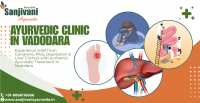- Hindustan Zinc beats consensus, backed by all-time high silver prices and lowest cost of production
- AAFT Announces Special Scholarship for Student from Panama through IPFCF
- Jaipuria Institute of Management, Noida, Unveils Centre for Social Innovation and Impact
- Bond Rees Opens a New Office in Aberdeen, Strengthening Investigative Support Services for Scottish Legal Market.
- Innosoft Group Drives Scalability and Performance with Cloud-Native Solutions for Enterprise Gaming Operators
- Flometriq Expands Global Presence with High-Demand Duplex Strainers Across Key International Markets
- White Jacobs Brings Proven Attorney-Backed Credit Repair Services to Residents in San Diego and Savannah GA
- Phoenix Marketcity Hosts Samsung Z Fold 7 Launch With Aparna Balamurali
- Anupam Kher Praises Rising Actor Aryan Katyal for Tanvi The Great Cameo
- The Scientology Information Center Invites the Community to Celebrate its 10th Anniversary
- Médic Celebrates Over 25 Years as a Premier First Aid & CPR Education Leader in Quebec
- Shoolini University and Common Services Centres Present Roadmap to Achieve 100% Gross Enrolment Ratio by 2050
- Future Electronics' Kathryn Sartain Receives CIT’s "Getting Things Done" Award
- Evarix Revolutionizes Crypto Trading with AI-Powered 3% Daily Returns
- Over 1000 Companies Empowered by Industry-leading Cloud MLM Software
 Mail to a Friend Mail to a Friend |
|
     |
Manipal Hospital, Dhakuria, rescues a 39-year-old woman from a rare dual medical crisis with paradoxical treatment options

Mumbai / Kolkata, 20th May 2025: Life changed dramatically for a 39-year-old woman living with Type 2 Diabetes Mellitus and End-Stage Renal Disease (ESRD) on maintenance dialysis when she presented to the Emergency Dept of Manipal Hospitals, Dhakuria with drowsiness, bradycardia and hypotension. What began as a critical cardiac emergency soon evolved into a complex case, demanding seamless interdisciplinary coordination, high-stakes decision-making, and advanced critical and renal care.
The patient suffered a cardiac arrest in the Emergency Dept. Quick and effective Cardio-pulmonary resuscitation (CPR) by the team of Emergency doctors under the expert care of Dr Ashok Mishra, Consultant, Emergency Medicine succeeded in reviving her. She was admitted under the care of Dr. Arghya Majumdar, Director & Head Nephrology, and was shifted to ICU 2 where Dr. Saswati Sinha, Consultant, Critical Care, and her critical care team stabilized her on ventilator and vasopressor support and started the work-up. Her history of long-standing vascular access problems had not previously been addressed because of financial difficulties. She had a line in her neck earlier, but it was removed because it got blocked. Now, she is getting dialysis through her groin, as permanent access couldn't be created, which has made her treatment more difficult.
CT angiography revealed thrombosis in the superior vena cava, which had probably migrated to the lung causing pulmonary artery thrombosis. The team started intravenous anticoagulation therapy with heparin, ie. blood thinners to avoid further progression of thrombosis. She was gradually extubated from the ventlilator, and blood pressure stabilised. She was shifted to step-down unit.
What made this case difficult was the concurrent management of life-threatening cardio-pulmonary problem in the background of ESRD necessitating dialysis, each exacerbating the other. The anticoagulants, while essential, were not without risk. Soon her condition deteriorated again. Her face swelled up and blood pressure decreased. She was rushed back to ICU and put back on ventilator support. Echocardiography and CT scan revealed fluid accumulating around her heart, and impending cardiac tamponade, a medical emergency in which fluid pressure around the heart. The lung clot needed strong blood thinners, but the heart complication required stopping them right away.
Dr. Sumanta Chatterjee, Consultant Cardiologist, was urgently called in and personally monitored the patient's condition with daily echocardiography, as draining a haemorrhagic pericardial effusion carries high risk. A repeat CT angiography showed the lung clots had resolved with treatment, allowing anticoagulation to be safely stopped—though the risk of recurrence remained. At the same time, her kidney condition required daily dialysis without blood thinners, increasing the risk of clotting the dialysis access line.
Dr. Arghya Majumdar said, “In my entire 30-year clinical career, I’ve rarely encountered such a difficult clinical dilemma with two life threatening conditions with paradoxical treatment options. It was like walking a tight rope over fire. Managing a ESRD patient dependant on regular dialysis, with cardiac arrest due active pulmonary thrombosis and unstable blood pressure and oxygenation, required not only speed and skill but unwavering coordination between Emergency, Nephrology, Cardiology, Critical Care, and Radiology.”
“We were treating a ticking time bomb all the time,” said Dr. Uttayan Chakrabarti, Consultant Nephrologist, who played a key role in clinical management. “Each decision carried massive risk—stopping clots by blood thinning could cause bleeding anywhere; stopping bleeding around the heart in the pericardial cavity, could allow more clots to form in the lung. It was a razor-thin line between life and loss. This wasn’t just about machines or medicines! It was about instant clinical decision making, clarity in chaos, and a belief that doctors can never give up even if the patient’s condition seems beyond salvage.”
Despite her fragile state and being on a ventilator, she needed access for dialysis. In this critical state a permacath insertion was successfully performed by Dr. Subhabrata Banerjee, Senior Consultant, Vascular & Endovascular Surgery demonstrating remarkable coordination and precision under pressure.
The patient's recovery was slow and closely monitored. However, against all odds, she went home as a survivor. This case brings into focus a larger healthcare reality too: delayed access to treatment due to financial constraints. Her earlier vascular access issues had gone uncorrected, putting her life in jeopardy. Manipal Hospitals continues to address such gaps through inclusive care models and patient assistance programs, reaffirming its commitment to accessible and ethical quality healthcare.
About Manipal Hospitals:
As a pioneer in healthcare, Manipal Hospitals is among the top healthcare providers in India serving over 7 million patients annually. Its focus is to develop an affordable, high-quality healthcare framework through its multispecialty and tertiary care delivery spectrum and further extend it to out-of-hospital care. With the completion of the acquisition of Medica Synergie hospitals and AMRI Hospitals Limited (acquired in Sept 2023), the integrated network today has a pan-India footprint of 37 hospitals across 19 cities with 10,500+ beds and a talented pool of 5,600+ doctors and an employee strength of over 18,600. Manipal Hospitals provides comprehensive curative and preventive care for a multitude of patients from around the globe. Manipal Hospitals is NABH and AAHRPP accredited, and most of the hospitals in its network are NABL, ER, and Blood Bank accredited and recognized for Nursing Excellence. Manipal Hospitals has also been recognized as the most respected and patient-recommended hospital in India through various consumer surveys.
Company :-Dentsu Creative PR
User :- Ankush Chavan
Email :-Ankush.Chavan@dentsu.com











